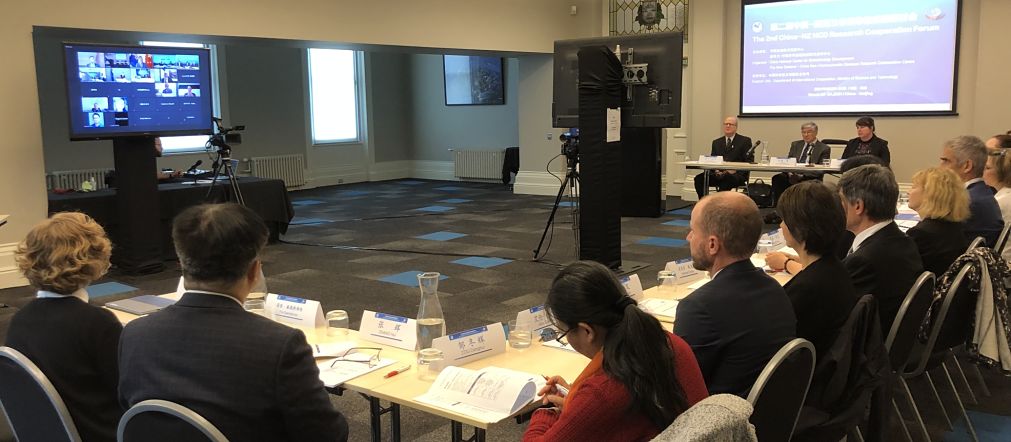An impressive range of joint research projects between Chinese and New Zealand cancer, brain and modernisation of traditional medicine scientists may receive further support from the New Zealand-China Non-Communicable Diseases Research Collaboration Centre (NCD CRCC).
Last week the second China-New Zealand Non-Communicable Diseases Research Cooperation Forum brought researchers together for enthusiastic discussions about existing and potential areas of collaborative research. The e-forum was hosted out of Beijing by the China National Centre for Biotechnology Development and by the Dunedin-based NCD CRCC, with many delegates joining virtually from Beijing, Shanghai, Wellington and other Chinese and New Zealand cities.
The Ministry of Business, Innovation and Employment (MBIE) allocated the NCD CRCC $1.6million over three years to support a collaborative research programme that was initiated at the first forum in 2019 in Queenstown, plus $500,000 to maintain the centre’s activities. The forum’s introductory address from China’s Deputy Director General, Department of International Cooperation, Ministry of Science and Technology (MoST), Jie Xu, indicated similarly strong support from the Chinese government.
The forum began with a formal opening ceremony with more than 50 attendees including representatives from both MBIE and MoST, plus attendees from the NZ Consulate General in Shanghai, Chinese Embassy in Wellington and Dunedin City Council’s (DCC) Enterprise Dunedin. This year’s focus was on the three priority research areas – brain science, cancer and modernisation of traditional Chinese medicine.
NCD CRCC Director Professor Jim Mann says, “The range and sheer number of possible collaborations discussed over a short space of time was impressive.
“Our first forum in Queenstown in 2019 gathered researchers together for what was very much a ‘getting to know you phase’, finding out the range of NCD and traditional medicines research areas that academics in China and New Zealand could collaborate on. This second forum cements those ties and really gets the ball rolling with active, shared research.”
Brian Research New Zealand Co-Director Professor Cliff Abraham says, “It’s clear that, like our own researchers, the speakers from China are very high performers at an international level – we are dealing with excellence. At the science level, these collaborations are only win-win. Research can go further and faster by harnessing each other’s resources. In New Zealand the resource of people with biomarkers of mental health or neurodegenerative disorders is limited, in China its huge.”
The NCD CRCC has benefitted enormously from the long standing and close sister city relationship between Dunedin and Shanghai over the years.
DCC Enterprise Dunedin Director, John Christie, says the forum and the connections the NCD CRCC have made with China are, “… practical evidence of the value of this partnership. Beyond the usual civic and cultural activities, real work has emerged. It has grown from various formal Memorandums of Understanding that provided initial political approval and backing. Now, as this forum shows, the opportunities have spread from just being between Shanghai and Dunedin, to work with other universities in other cities in both countries.”
The two-day forum concluded with reports from each group where existing collaborative relationships were strengthened and new connections emerged.

